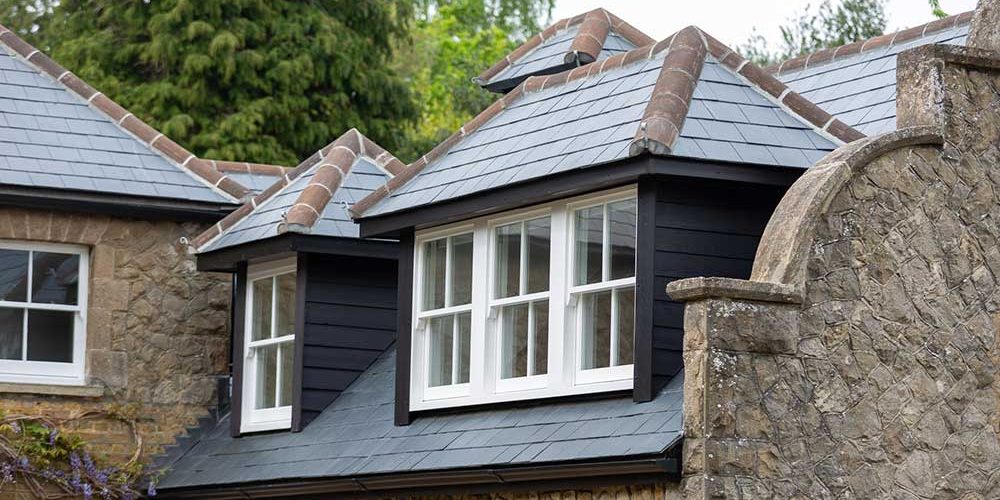Roofs are an element of home construction which can introduce variety to property aesthetics not only nationwide, but around your very own neighbourhood. However, it isn’t only their appearance that differs – there are in fact a range of qualities that various roof structures can provide.
Across the country, we most commonly see two versions of roofing – pitched and flat. When constructing a new build or transforming your existing property, you may find yourself stuck in the confusion of which option is best for you.
With our guide into both types, we hope to provide you with the answer you are seeking.
Pitched roofs
Pitched roofs are typically known as the traditional roofing option. Their appearance can alter depending on the shape of each properties structure, but will commonly consist of a smooth slope from a central ridge, from one edge of the home to the other.
The advantages of a pitched roof
Pitched roofs allow for increased ventilation
With a pitched roof, you are able to add a ventilation tower during construction. This means that, in the space between the surface of your pitched roof and the flat ceilings of your living space, hot air is able to rise away from your living area, keeping you and your family comfortable all year round.
Adding insulation is simple with pitched roofs
The empty space between the ceilings of your living area and the pitched roof itself is most commonly used as a storage space, but before you begin loading your belongings into the space, you could first add insulation – and easily too. Insulation boards have a high thermal efficiency and can be stored in your loft area to reduce heat loss throughout the winter.
Pitched roofs are a durable solution
Pitched roofs have been used within home construction since before we could even remember, and the longevity that they provide is incomparable – so long as they are looked after. This is the proof that is needed to provide us with the knowledge that the addition of pitched roofs upon our properties will always be a safe, reliable decision.
Pitched roofs allow you to reuse rainwater
Rain is something which we aren’t un-familiar of here in the UK, and pitched roofs allow us to put it to use. With the sloping angle of their construction, rain will effortlessly flow off of your roof and into your guttering. By connecting a water-butt to the end of your drainpipe, you can store your rainwater for later use, such as watering your plants, saving you money on your water bills!
Flat roofs
A flat roof is the newest form of the two, and contrasts heavily against the traditional pitched roof. Even still, flat roofs are popular in property construction today, most commonly with home extensions. There is still al slight slope on this form of roof structure, but it is likely to remain at around 10°.
CONTACT A.G. KERR CARPENTRY
The advantages of a flat roof
Flat roofs are cost-effective
Flat roofs require different materials to a pitched roof, and these do come at a lower cost. The maintenance required for the construction of the roof, as well as any required repairs over time, involve less working time and therefore result in decreased labour costs.
Flat roofs provide a safe space for HVAC installation
HVAC units, in either commercial or residential properties, can be stored on the flat roof, preventing damage from occurring whilst still providing you with effective air conditioning and heating throughout the year. If the unit requires a repair or service, your HVAC professionals will be able to assess it simply, with a safe and flat base to stand on.
Flat roofs are easy to clean
Over time, debris such as twigs and leaves can wind their way onto our roofs and if not removed, could cause damage. When it comes to cleaning a pitched roof, it can involve knowledge and additional safety due to the uneven ground. With flat roofs, providing you are able to make it up onto the roof with the same level of care and safety, the action of cleaning of the roof itself can be simpler. With a clear view and a flat surface underfoot, the job can be completed to a high standard, preventing damage from occurring over time.
At A. G. Kerr Carpentry and Construction, our construction team are here to take the stress away from your property plans. To find out more about the work we could do for you, get in touch by calling 01342 822 750 or emailing info@agkerrcarpentry.co.uk.





